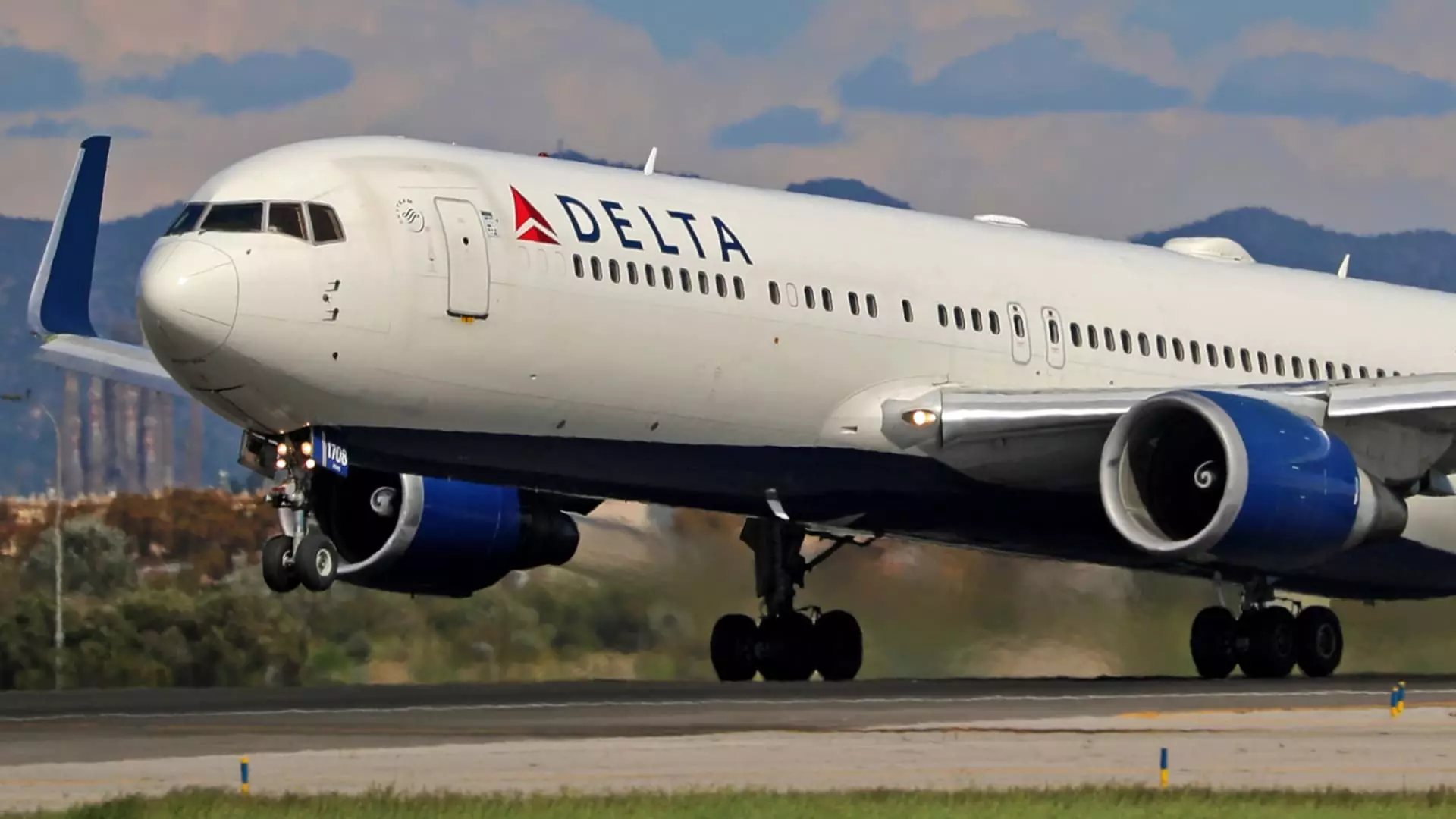The airline industry, once buoyant and unyielding in the face of global challenges, now finds itself at a precarious crossroads marked by a host of concerning signs. The gradual retreat from travel, particularly from Canada, starkly contrasts the post-pandemic surge that the industry had relied upon. Airlines that thrived on the high-flying ambitions of consumers are now grappling with a crumbling demand landscape that threatens their very foundation. Analysts are raising alarms as the current trends suggest that the demand for air travel, once deemed invincible, is showing serious signs of fatigue.
In what can only be described as a disheartening shift, major U.S. airlines are poised to revise their optimistic projections for 2025 downward when they announce their earnings in the days ahead. This sentiment resonates through industry discussions, with Raymond James analyst Savanthi Syth characterizing the current market as significantly “softer” than earlier this year. Delta Air Lines has already hinted at slashed earnings forecasts due to lackluster corporate and leisure booking trends, which should send shivers down the spine of any stakeholder. If the giants of the airline world are struggling, what does that portend for smaller carriers and travel-related businesses?
Rising Tariffs and Shrinking Trust
Compounding these ominous indicators are the sweeping economic policies emerging from the highest levels of government. The U.S. recently imposed global tariffs, some reaching a staggering 10%, which sends ripples of uncertainty throughout industries that rely on the free movement of people and goods. The airline sector is no exception. As tickets become burdensome due to additional costs imposed by tariffs, consumers naturally begin to pull back, reconsidering their travel plans. This raises a critical question: are we witnessing the culmination of a larger ideological battle that prioritizes economic protectionism over the global interconnectedness that the travel industry thrives upon?
As consumer confidence continues to wane, combined with economically cautious sentiments driven by inflation, there is a palpable sense of instability that hangs over the travel sector. Market reaction has been swift, with stocks of major airlines plummeting, underscoring a collective perception that actual realities are outpacing the overly optimistic forecasts. Despite Delta and other major carriers reporting strong demand from affluent passengers, the broader picture suggests that this luxury travel segment may not be enough to stave off a systemic downturn.
Structural Changes and Caution Ahead
The gravity of the situation is reflected in the management teams of the airlines themselves, who now face the daunting task of navigating an unpredictable consumer landscape. Not only are layoffs affecting company cultures—particularly in sectors dependent on corporate travel—but they are altering perceptions about travel itself. As consulting firms and business giants like Deloitte trim their excesses, the resulting decline in government and corporate travel revenue sends shockwaves throughout the industry.
Even with luxury travel remains an appealing prospect for some, questions loom about the sustainability of this segment as economic pressures mount. Analysts speculate that while premium cabins may still stay occupied, the overall yield for airlines could take a hit if demand continues to dwindle. With airline executives left grappling with these nuances during quarterly calls, the urgent need for innovative strategies to stimulate demand becomes unmistakable.
Inflation’s Stranglehold on Consumer Behavior
In the larger context, rising inflation is strangling not just airline practices but also consumer expectations. The knock-on effects of reduced travel confidence are already apparent, with individuals and families treating their travel plans with increased skepticism. Recent reports from the Bank of America Institute suggest that dips in consumer confidence directly impact the inclination to book trips spontaneously. When families begin reevaluating the value of their travel experiences in light of heightened economic pressures, the potential for transformative change within the industry looms large.
As the airline industry sits on a precipice shaped by inflation, eerie predictions emerge about further declines, particularly within business travel. Many analysts express deep concern that persistent economic instability may lead to sustained cuts in corporate travel budgets, which are critical for keeping airline profits afloat. The unlikely prospects for a quick rebound in consumer confidence complicate the picture even more, suggesting that airlines may be in for a long, tough battle towards recovery.
In standing against these turbulent currents, airlines must navigate their futures carefully, seeking sustainable solutions—perhaps by offering frequent flyer incentives or appealing vacation packages—to breathe life back into the industry. The reality, however, appears chilling: the once-golden age of travel may be redefined by a new chapter fraught with uncertainty and cautious anticipation.

